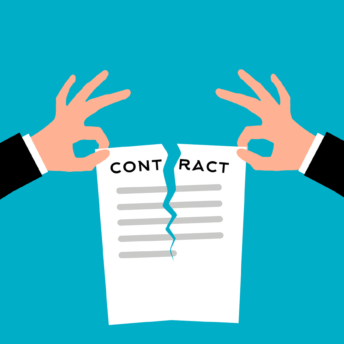A lasting power of attorney is a legal document that allows someone to make decisions for you, or act on your behalf, if you’re no longer able to or if you no longer want to make your own decisions. The people you appoint to manage your affairs are called the Attorneys. A Lasting Power of Attorney (LPA) is a completely separate legal document to your Will. In this article, which lasting power of attorney, we take a look at the different types of LPAs available.
Free Initial Telephone Discussion
For a free initial discussion on how we can help you set up a Lasting Power of Attorney, get in touch with us today. We will review your situation and discuss the options open to you in a clear and approachable manner. Early expert legal assistance can help ensure your wishes are accurately recorded and also avoid the stress of dealing with these issues on your own. Simply call us on 0345 901 0445 or complete our online enquiry form and a member of the team will get back to you.
Are there different types of Power of Attorney?
There are three types of Power of Attorney and you can set up more than one:
Ordinary power of attorney
This covers decisions about your financial affairs and is valid while you have mental capacity. It is suitable if you need cover for a temporary period (e.g. a hospital stay or holiday) or if you find it hard to get out, or you want someone to act for you.
Lasting power of attorney (LPA)
An LPA covers decisions about your financial affairs, or your health and care. It comes into effect if you lose mental capacity, or if you no longer want to make decisions for yourself. You would set up an LPA if you want to make sure you’re covered in the future.
Unlike an enduring power of attorney (EPA), there are two types of LPA that offer much more flexibility in their application and use. The first type is a health and welfare LPA. This deals with your health and welfare decisions and can only be used after you have lost the ability to make your own decisions, which is also known as ‘losing your mental capacity’.
The second type is similar to how an enduring power of attorney works and deals with any property you own as well as your financial affairs. This can be used before or after someone loses their mental capacity.
In both cases, it’s important to remember that an LPA is for use during your lifetime as and when you need it, it is not for use after death. In the event of death, an LPA is superseded by your Will (another document that everyone should have in place).
Enduring power of attorney (EPA)
EPAs were replaced by LPAs in October 2007. However, if you made and signed an EPA before 1 October 2007, it should still be valid. An EPA covers decisions about your property and financial affairs, and it comes into effect if you lose mental capacity, or if you want someone to act on your behalf.
An enduring power of attorney would formerly have been created when an individual wished to appoint another person to act on their behalf with regards to the donor’s (the person creating the enduring power of attorney) property and financial affairs.
If you have already created an enduring power of attorney, it is worth noting that if it was created before the 1st of October 2007, it will still be effective and valid.
Understanding Lasting Powers of Attorney
There are two main reasons you might want to set up an LPA:
A health and care LPA lets your Attorney make decisions about your medical treatment general everyday care. This can include where you live, what food you eat, your visitors, exercise and access to the outdoors.
A financial decisions LPA lets your Attorney handle (and make decisions about) your money and property. This can include paying your bills, selling your property, collecting your pension, collecting your benefits and ensuring things like insurance is paid.
This arrangement can be on a temporary basis. For example, you may need to visit the hospital for a routine procedure and whilst you are convalescing, having an attorney could prove to be very helpful.
Alternatively, you may feel you require help on a more long term and possibly permanent basis. This could happen if you have been diagnosed with some form of dementia and you may lose the mental capacity to make your own decisions in the future.
What’s the difference between an EPA and an LPA?
There are a number of differences between an EPA and an LPA.
An LPA offers increased flexibility for the donor, as an LPA can cover health and welfare as well as property and financial affairs. However, there are noteworthy differences.
Under an EPA the regulations are much more stringent for elements such as who may be appointed as an attorney if you fall ill or lose your capacity. EPAs only allow one attorney to be appointed or where multiple attorneys are selected, they would all have to act together. This can cause complications if the person appointed becomes ill or loses capacity themselves. Additionally, if your attorneys become unable to act under an EPA it becomes invalid as there is no one to replace them.
An LPA is much more flexible and offers greater protection as you can appoint replacement attorneys. This is particularly useful if your original attorney or attorneys become unable to act. LPAs also have the option to allow a donor to register the LPA immediately.
However, for individuals who have an EPA in place, they may be more restricted. This is due to the fact that an EPA can only be registered by an attorney once a person has started to lose capacity. So if the donor stipulates that the EPA may only be registered once they lose mental capacity, but their physical health deteriorates to the point where they need their attorney to act on their behalf, the situation can become very complex as the EPA does not allow, in this instance, for the EPA to come into force.
LPAs are more ‘secure’ as you have to have a certificate provider who signs the document to confirm that the person making the LPA understands the power they are giving and is not subject to any undue influence or pressure.
Do I need an LPA if I have an EPA?
Enduring powers of attorney (EPAs) were replaced by lasting powers of attorney (LPAs) from October 2007. EPAs made before that are still valid and you do not have to convert them to an LPA unless you want to.
How we can help
We have a proven track-record of helping clients draft their Wills and advising upon Powers of Attorney. We will guide you through all the necessary legal due diligence in a comprehensive and timely manner. We firmly believe that with the right solicitors by your side, the entire process will seem more manageable and far less daunting.
How to Contact our Wills and Probate Solicitors
It is important for you to be well informed about the issues and possible implications of writing your Will and setting up a Lasting Power of Attorney. However, expert legal support is crucial in terms of ensuring your final wishes are met as you would want them to be.
To speak to our Wills and Probate solicitors today, simply call us on 0345 901 0445, or allow a member of the team to get back to you by filling in our online enquiry form . We are well known across the country and can assist wherever you are based. We also have offices based in Cheshire and London.






Leave a Reply
You must be logged in to post a comment.